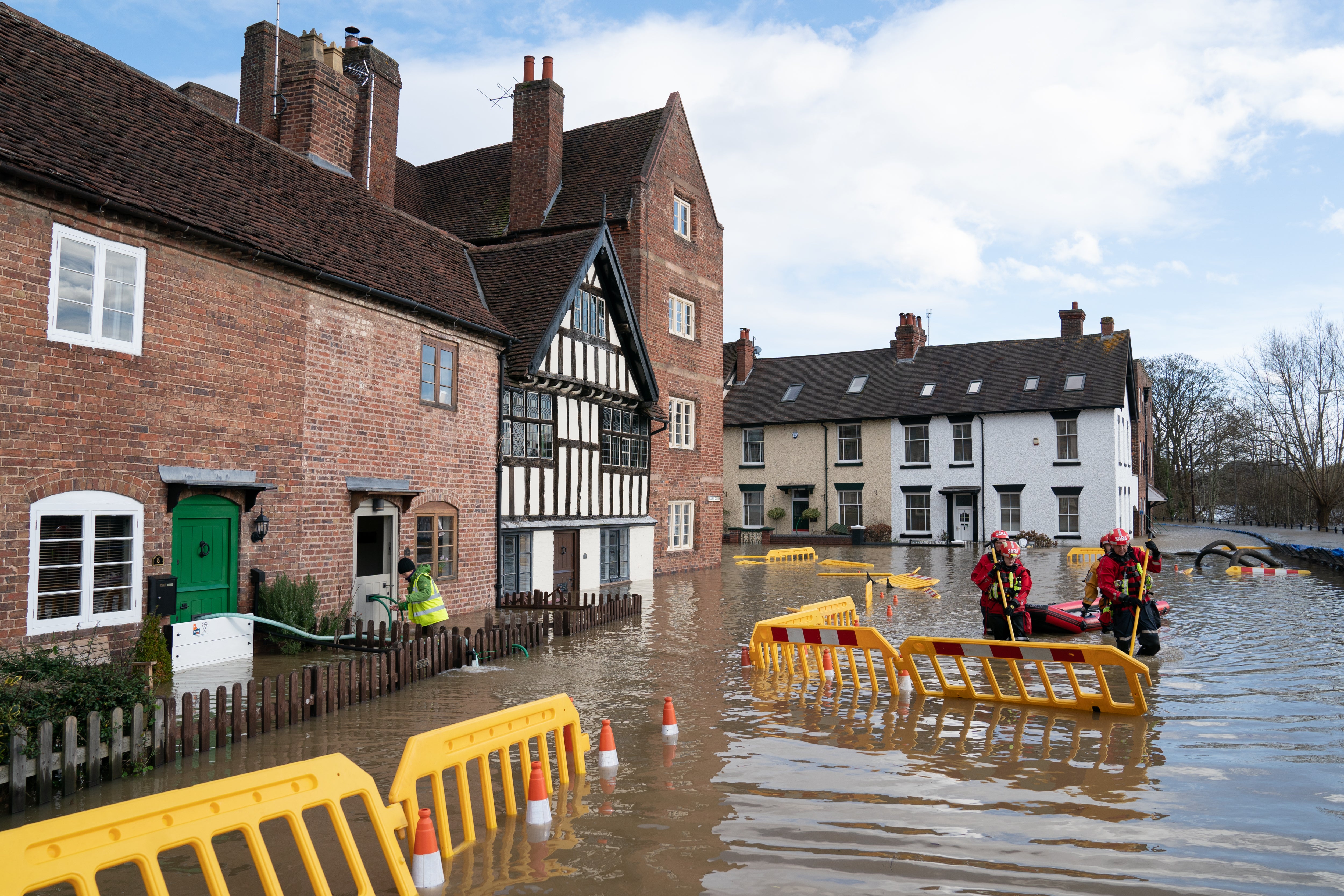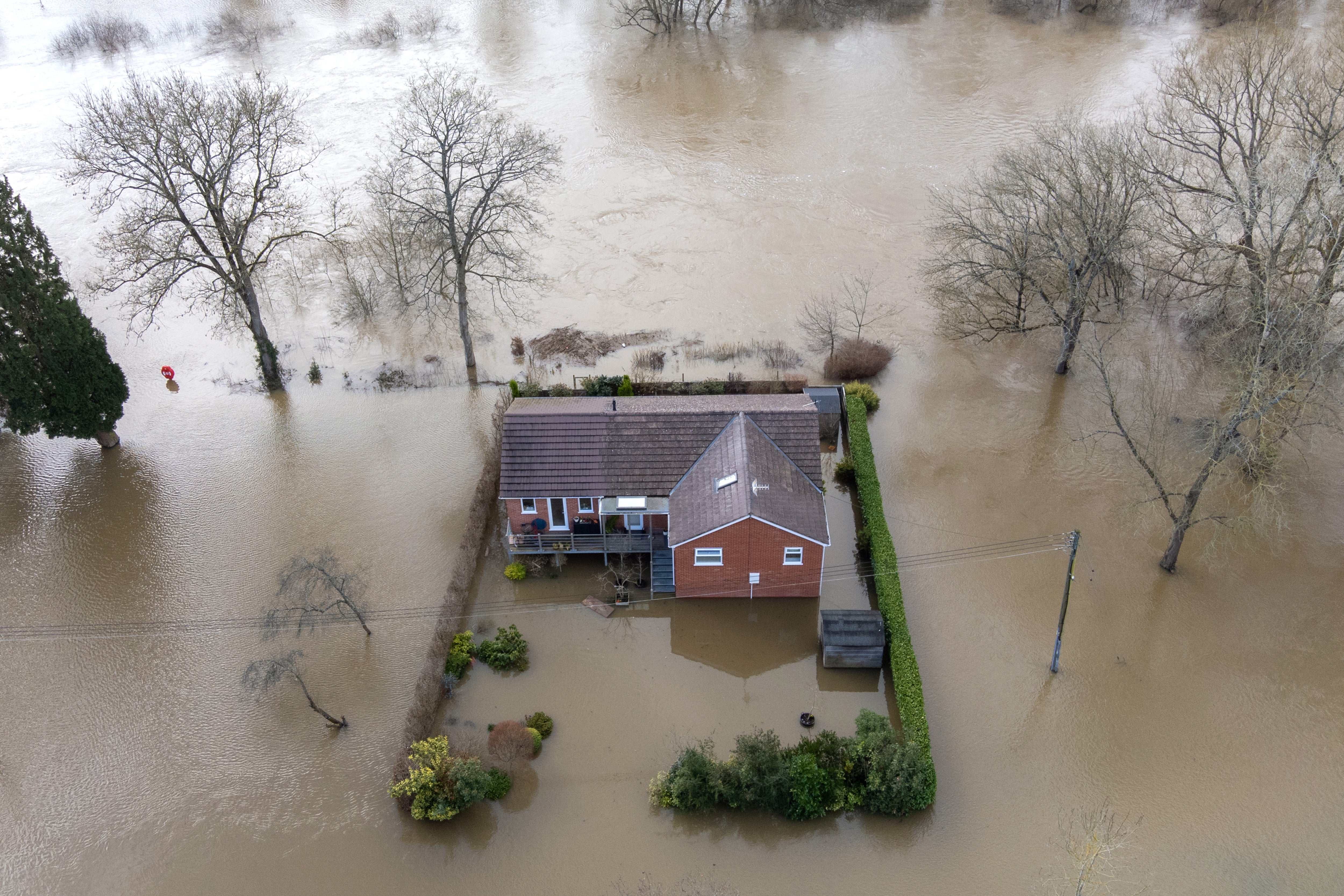Flood-prone areas have higher rates of house building, think tank finds
It means ‘serious flooding events will become much more frequent in the UK’, reports Zoe Tidman


House building is happening at a higher rate in flood-prone neighbourhoods compared with ones considered safe from the threat, a new report claims.
Housing stock has increased more than 50 per cent faster in areas with a flood risk from rivers or the sea over the past six years, think tank the Resolution Foundation found.
Authors warned this – combined with increased rainfall because of the climate crisis – would make serious flooding events “much more frequent” in the UK.
The think tank said the housing stock had grown by about 7 per cent in flood-prone neighbourhoods between 2015 and 2021.
This was compared with an increase of just 4.7 per cent in areas with no flood risk at all.
“Climate change means that the chance of existing homes flooding is on the rise, but overall flood risk rates can also rise if new developments are built on flood-prone land,” the report said.

It said the findings on higher rates of house building in flood-prone areas were “of concern” because of this.
The authors estimated that most – 56 per cent – of the new houses built in the past six years had been built in neighbourhoods where some flood risk exists.
Many new properties in flood-prone neighbourhoods were in areas – such as London – with particularly acute demand for housing, they said.

Last year, research found thousands of homes had been given planning permission despite being located in areas particularly prone to flooding.
Jonathan Marshall, a Resolution Foundation senior economist and one of the report authors, said: “Rising rainfall levels, combined with increased rates of house building on flood-prone land, means that serious flooding events will become much more frequent in the UK and that the number of people exposed to flooding will continue to grow.
“This is of particular concern for poorer families, who are the least protected from the consequences of flooding, as they are much less likely to possess contents insurance than their wealthier counterparts.”

The new research comes several months after a liberal Tory think tank warned poorer areas of the UK were especially underprepared for an increasing flooding risk from the climate crisis.
Around the same time, the Environment Agency warned it may end up becoming too expensive to protect properties from flooding as the climate crisis goes on.
It also said last month more than 300,000 homes in England were now better protected from flooding due to a six-year drive to create new defences.
Hundreds of houses have already been flooded this year – including in the towns of Bewdley and Ironbridge – when back-to-back storms hit the UK
A government spokesperson said: “Our national planning policy is clear that flood-plain development should be avoided wherever possible, and protections must be put in place when building in these areas is necessary – we expect local planning authorities to follow this guidance.”






Join our commenting forum
Join thought-provoking conversations, follow other Independent readers and see their replies
0Comments